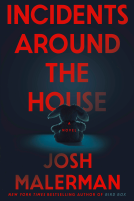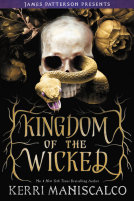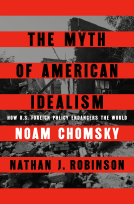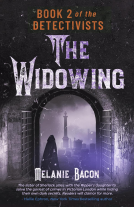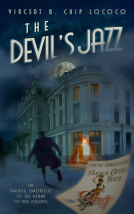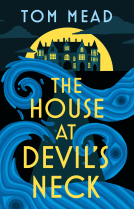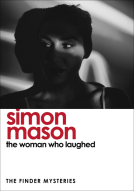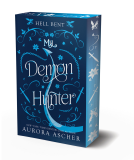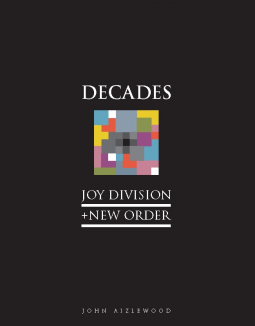
Joy Division + New Order
Decades
by John Aizlewood
This title was previously available on NetGalley and is now archived.
Send NetGalley books directly to your Kindle or Kindle app
1
To read on a Kindle or Kindle app, please add kindle@netgalley.com as an approved email address to receive files in your Amazon account. Click here for step-by-step instructions.
2
Also find your Kindle email address within your Amazon account, and enter it here.
Pub Date Nov 16 2021 | Archive Date Nov 05 2021
Talking about this book? Use #JoyDivisionNewOrder #NetGalley. More hashtag tips!
Description
There’s no template for making it as a globally successful pop group. Some of the ingredients remain constant and beyond the music, there’s a mix’n’match selection of premature death, drugs, drink, destroyed friendships, lukewarm solo projects and bungled finances. The saga of Joy Division and New Order has all those clichés, yet both groups defined their times and overturned their musical landscape.
First, there was Joy Division. Their music reflected both the barren urban landscape of their native Manchester in the late 1970s and singer Ian Curtis’s heart of darkness. They remain forever set in aspic, not merely – if “merely” is the right word – by the suicide of their extraordinary and extraordinarily volatile singer, but by two albums as close to perfection as music can come.
From the ashes of Joy Division rose New Order, who recruited a keyboardist because of – rather than in spite of – the fact she couldn’t play. On the cusp of the British dance music boom, with what seemed like remarkable prescience, they invested in The Haçienda, a club in their native Manchester. In its pomp, the queues were around the block, but its debts would sink their heroically hopeless record label, Factory.
If Joy Division were sublime musical darkness, New Order were bathed in sunlight and their globally popular music bridged the chasm between indie and dance and inspired a generation. Having conquered the world while maintaining their credibility, they snatched defeat from the jaws of victory and imploded in a tsunami of recrimination, while still making fabulous music to this day. You couldn’t make it up: there’s no need to.
A Note From the Publisher
Please note that this is a large illustrated book, and is best read via Adobe Digital Editions. Instructions for installing here: https://netgalley.zendesk.com/hc/en-us/articles/115003979634
Available Editions
| EDITION | Other Format |
| ISBN | 9781786751164 |
| PRICE | $34.95 (USD) |
| PAGES | 240 |
Links
Featured Reviews
Full disclosure - I don’t really like Joy Division or New Order, but if ever a book was going to make me like them, then “Decades” by John Aizlewood would be the closest thing to it.
Forever the darlings of the music critics, there has always been a sense that both groups are bulletproof and beyond true criticism. Like Berlin-era Bowie, Morrissey and The Smiths, someone has decided that THEY ARE IMPORTANT, and we need to keep talking about them, even when they’re being rubbish. Luckily, John Aizlewood is very good at talking about Joy Division and New Order. This book is for both hardcore fans and those whose knowledge extends only to knowing that Joy Division did “Love Will Tear Us Apart” and New Order did that surprisingly good World Cup song.
As author John Aizlewood maintains in his history of the two bands, Ian Curtis “meant it”. Indeed, I think this is a crucial factor in their lasting importance. Dying young, ostensibly on the cusp of greatness, his legend remains preserved in aspic because he didn’t live long enough to become rubbish. Aizlewood writes vividly and economically on the early years of the band members and offers insightful analyses on each album and single; this is a real fan speaking. Lucid “sleeve notes” sidebars accompany the dissection of each album.
Emerging from the “dirty old town” of postwar Manchester, a deprived yet indomitable city, grammar school boys Bernard Dicken (later Albrecht then Sumner) and Peter “Hooky” Woodhead bonded at school (sort of) over a shared love of music and misbehaviour. On meeting the intense and married Ian Curtis, the band Warsaw was formed, to some acclaim, with Stephen Morris eventually warming the drum stool. As Aizlewood memorably puts it, only death would change the lineup. After a necessary name-change, Joy Division were born, honing their dystopian music as a reaction to the post-industrial surroundings of Manchester. Aizlewood writes unsensationally on the suicide of Ian Curtis, quoting music press obits of the time, one of which claimed Ian’s death “froze” Joy Division in an eternal moment of almost making it. To do that, they would have to reinvent themselves as New Order, recruiting Stephen Morris’ girlfriend, Gillian Gilbert, on keyboards.
All of that band’s hits & misses, highs & lows, splits & reunions, solo projects of varying quality and nightclub-owning shenanigans are examined by Aizlewood as New Order initially struggle to exorcise the ghosts of Ian Curtis and Joy Division. The biggest-selling 12” record (remember them?) of all time, “Blue Monday”, would change all that. New Order’s latter years are a litany of strained inter-band relationships, financial mismanagement and Hooky’s alcoholism; painful to read but sadly essential when discussing this particular band’s history.
Saturated with cultural references from one of the greatest ever music eras and fully illustrated with photographs, (complete with irreverent captions), “Decades” is erudite but also incredibly funny; John Aizlewood eschews the usual pretentiousness that Joy Division engender in favour of a writing style which borders on satire. But his admiration for the music comes through strongly. The result is as good a history of Joy Division and New Order (including all the awkward things associated with them) that we could ever hope for. “Decades” is an outstanding, coffee-table-friendly history of two of the most interesting bands ever to come out of Britain.
 Librarian 431790
Librarian 431790
Even if I was a goth in the 80s I wasn't a huge fan of Joy Division (even if Decades is in my top ten of fav songs) and didn't like New Order. I started to listen to them later in my life and appreciating their sounds.
This is an interesting biography that analyses the band, their story and talks about some aspects that are not so well known or remembered.
I appreciated the style of writing and how the author deals with a sort of "untouchable and seminal" band.
Well researched and well written, it's was also a lot of fun to read.
Highly recommended.
Many thanks to the publisher and Netgalley for this ARC, all opinions are mine
 Debbie L, Reviewer
Debbie L, Reviewer
Definitely not a book that can be read on a standard kindle!
Absolutely packed with pictures and information both known and the unknown of these bands.
Reading it digitally is ok but this is a book that is meant to be read, real book in hand!
This is a must for fans of not only these bands but of music in general.
I will be buying this book when it is released for my stepdad as I just know he will absolutely love it as he has always had a passion for music and this is his era!
Readers who liked this book also liked:
Keith Martin; Konstantinos Mersinas; Guido Schmitz; Jassim Happa
Business, Leadership, Finance, Computers & Technology, Reference
Vincent B. "Chip" LoCoco
Historical Fiction, Horror, Mystery & Thrillers
